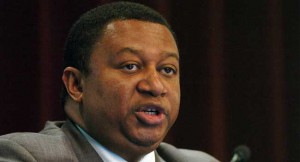This has to trouble OPEC, and mostly Saudi Arabia, who has been trying to micromanage global oil prices over the past few weeks with announcements to agree to agree to production cuts at OPEC’s next meeting in November.
There is even talk that Iran, who is still trying to reach pre-sanctions production levels, would actually not have to cut production as part of the deal, as well as a potential waiver for both Nigeria and Libya. Russia is also reportedly going to meet with OPEC members in a meeting in Istanbul this week over possible production cuts.
However, Iraq could increase its oil production despite OPEC’s recent announcement. Iraq’s oil Minister, Jabar Ali al-Luaibi, has urged oil and natural gas producers operating in the country to continue increasing output for the rest of the year and in 2017, Iraq’s oil ministry disclosed on Sunday.
Luaibi made his remarks at a meeting of Iraqi oil industry executive in the southern oil city of Basra to review the ministry’s oilfields’ development plans, media reported. The oil minister didn’t reference OPEC’s September 28 announcement made on the sidelines of an energy forum in Algiers to agree to cut production by as much as 1% in November.
According to the Iraqi oil ministry statement, “[Luaibi] has affirmed the need to proceed forth with increasing oil and gas production through enhancing the national effort and those of the licensed companies for the remainder of 2016 and also for 2017.”
He added that oil output targets “should be reached within the assigned periods.”
Iraqi oil production has increased over the past decade as foreign oil companies poured into the country, despite sectarian violence and ISIS control in part of the north.
.Forbes














